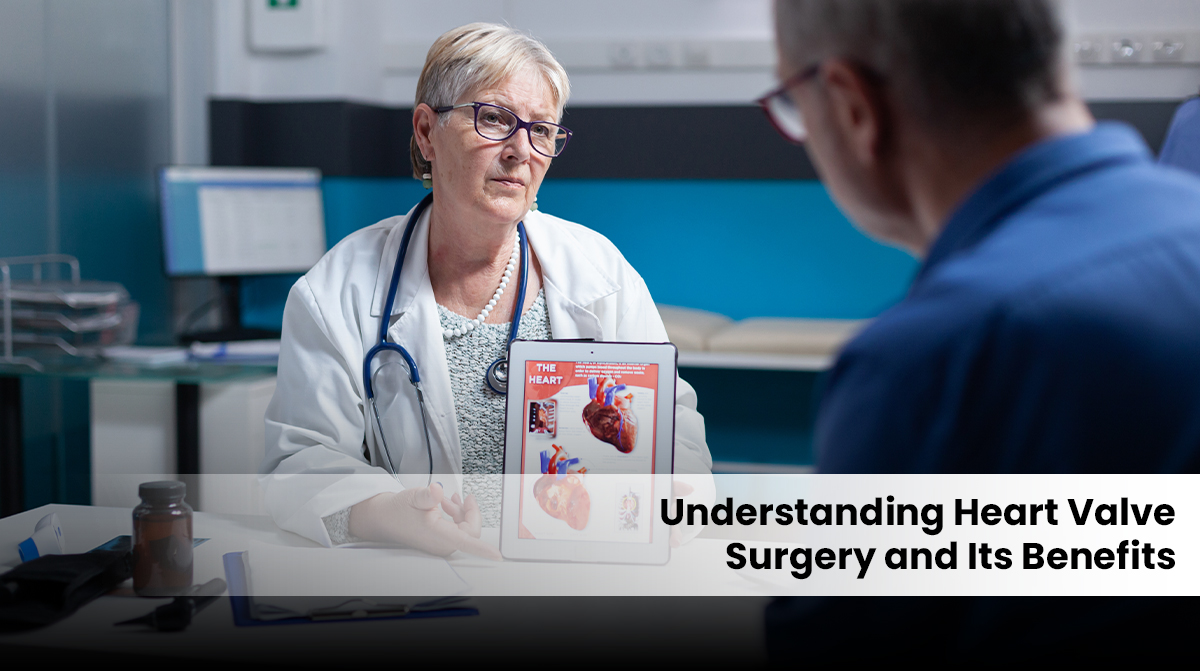
The human heart has four vital valves that serve as one-way gates to ensure that the blood travels in the right direction, hence making it a marvellous pump. The malfunction of such valves can have a very significant detrimental effect on your health in general and the quality of your life. Millions of individuals across the globe have discovered that surgery to repair and replace heart valves may alter their lives and offer the victims of cardiac diseases that affect heart valves hope and a new life. This blog will present the challenges of heart valve surgery and help you understand what it involves, why heart valve replacement might be necessary, and how it may transform the lives of people.
1. When Your Heart’s Doors Need Repair
Heart valve problems generally involve two main forms: regurgitation, which is when heart valves do not seal and allow blood to flow backward, and stenosis, which occurs when valves are too thin and too narrow to allow the flow of blood. These can be caused by infection, birth defect, or just wear and tear of old age, or over the years. The next logical step that you should take in ensuring that your heart performs well is to perform heart valve surgery when the drugs and lifestyle changes can no longer alleviate the condition, and it continues to threaten your heart’s ability to pump blood effectively.
2. The Surgical Approach: Precision Meets Innovation
The modern heart valve surgery incorporates several highly sophisticated procedures, each of which is tailored towards the specific needs and case of a given patient. In complicated cases, the type of surgery that typically achieves optimal results is an open-heart surgical procedure, which is conducted through a large incision around the chest to provide direct access to the heart. The less invasive surgeries take shorter periods to heal because they use small cuts, thus causing minimal scarring. A new procedure, known as transcatheter valve replacement, has enabled surgeons to replace valves by accessing the heart through the blood vessels, eliminating the need to open the chest.
3. Replacement Versus Repair: Choosing the Right Solution
During valve surgery, surgeons are supposed to make some decisions on whether to start with a new valve or repair the existing one. Valve repairing is the act of changing the damaged components to the original valve system, and it is more likely to yield more long-term successful results and lesser problems. There are two general categories of valve replacements: biological valves made out of human or animal tissue, which feel more natural but may need to be replaced later, and mechanical valves, which are made of durable materials and may last decades with the consumption of blood thinners throughout life. Your surgeon will explain these options to you, keeping in mind your medical history, your age, and your lifestyle.
4. Preparing Your Body and Mind for Surgery
There is much preparation made weeks before the procedure, so that the valve surgery can be prepared. In a bid to provide a clear picture of your heart health, your medical team will subject you to in-depth tests that involve imaging procedures, cardiac catheterization, and blood work. Other components to pre-operative preparation include optimisation of your general health by eating well, doing as much exercise as possible, and ensuring that illnesses that you have, such as diabetes or high blood pressure, are well-controlled. Fear decreases and the outcomes increase when one understands how it functions; hence, mental preparation is equally vital.
5. The Surgical Experience: What Happens in the Operating Room
During the day of the surgery, you will be administered general anaesthesia, and the surgery will then be carried out. The surgical team will carry out the task under the guidance of a cardiac surgeon, who will thoroughly examine your heart to repair the valve defect. The open-heart surgery replaces your heart temporarily with a heart-lung machine to allow the surgeon to make their corrections on the motionless heart. Typically, the treatment can take between three and six hours, depending on the complexity and the number of valves that need to be taken care of. Specialised monitoring equipment in the procedure monitors your vital signs to keep you safe.
6. Recovery: Your Path Back to Wellness
The process of surgery recovery takes place in phases, and the first step of it is the recovery in the intensive care unit, where the doctors watch carefully over the work of your heart. The early stages are included in the pain management, infection prevention, and restoration of routine activities. Most patients remain in the hospital for up to five to seven days, with the initial days being used to stabilize their condition and ensure that they are healed to perfection. The cardiac rehabilitation regimens assist patients in the long-term recovery process by providing emotional, educational, and exercise support.
7. Life After Surgery: Embracing Your New Beginning
A substantially greater quality of life is often achieved as soon as heart valve surgery is carried out successfully. The majority of the patients report that they are more energised, more tolerant of any kind of exercise, and are free of any symptoms compared to the condition before it. Success should be viewed as the result of a permanent commitment to a heart-healthy lifestyle, encompassing regular exercise, a balanced diet, proper medication intake, and regular follow-ups. Whereas some of the patients who have mechanical valves may be on constant anticoagulants, some of them may need a frequent check-up on the valve. Proper treatment and adjustments to the way of life can have most patients back with years of improved health and stamina, a rejuvenated urge to engage in their favourite hobby, an active, productive life.
8. The Remarkable Benefits That Transform Lives
The benefits of heart valve surgery can be much more than those of the operating room. Some patients have reported remarkable changes concerning their overall quality of life, strength, and breathing within weeks after surgery. Life expectancy, risk of an incidence of stroke, and heart failure can be permanently increased, and heart failure can be prevented by the operation. Most of the patients gain the ability to come back to activities which they had abandoned, like spending their free time with friends and relatives, or going upstairs and avoiding dyspnoea from their cardiac disease.
Conclusion
Heart valve surgery is a testimony to the abilities of modern medicine to bring life and hope to people with serious cardiac issues. The surgery saves people; it brings new life to conditions that debilitate a person, and it truly is a miracle that is changing the lives of many. Despite the challenge, the journey that spans between diagnosis and recovery has the possibility of a significant improvement in the quality of life. With the technological push in the medical field, such heart valve replacement surgery in Gurgaon, India, and other facilities around the world is developing to be more effective, safer, and advanced.


